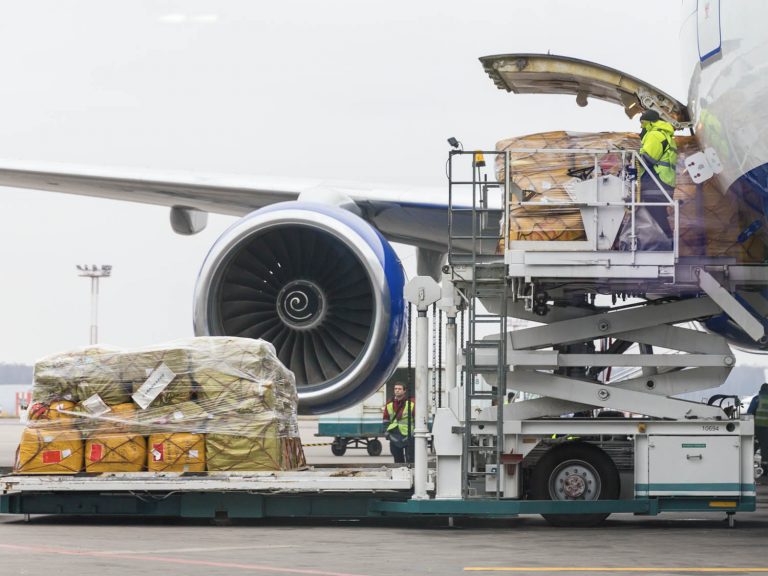
Date:
Coronavirus update, 27th March
Just days into the UK lockdown and the nation is getting used to the ‘new normal’, adopting new working practices and working from home.
These bulletins are intended to keep you informed of the developing global supply chain reaction to the Coronavirus pandemic. As such they can make bleak reading, for which we can only apologise and highlight the (apparently) good news that, according to The Daily Telegraph, you’ve already got Coronavirus!
Modelling from the University of Oxford suggests that up to half the UK population may already have been infected with the virus which, if true, means that the disease is less serious for many and accelerates the possibility of herd immunity……………time will tell.
While Metro continue to uplift cargo on our air, sea and Sea/Air services from China, importers are beginning to reduce and postpone shipments, suggesting that the anticipated surge of inbound cargoes will be short-lived as the impact of the lockdown curbs consumer demand.
The change is a sharp reversal from a few weeks ago, when we were helping shippers accelerate shipments through the supply chain, to replenish their inventories after the prolonged China shutdown.
“China surge replaced by rising demand for storage”
Intra-EU freight is still moving, even from the southern countries most affected by coronavirus, but border delays are increasing and the threat of quarantine is deterring some drivers from embarking on long distance international routes.
To resolve these delays the EU Commission has urged member states to create fast lanes for trucks carrying all types of goods. Going through these ‘green lane’ border crossings, including any checks and health screening of transport workers, should not exceed 15 minutes on internal land borders,” the commission said.
“EU Commission seeks 15 minute ‘green lanes’
There is no indication when, or if, the ‘green lane’ border crossings will be implemented by member states.
Russia has announced the suspension of all international flights from the 27th March, so today is the last day of Aeroflot regular flight operations, while South Africa will go on a nationwide lock-down until the 17th April 2020.
With retailers temporarily closing stores and business activity experiencing the steepest decline in a decade, we are seeing shippers hold orders at our origin freight centres, seeking to delay them with longer transit times, or using our storage facilities to divert cargo from their DC’s.
Some retailers are accepting fewer deliveries into their distribution centres, which is raising questions as to where the unloaded containers will go, if key ports like Felixstowe, London Gateway and Southampton get congested and the containers can’t be returned within the free-time window.
Order cancellations and postponements are uneven, with medical supplies obviously prioritised with discretionary merchandise such as technology, furniture and fashion being cancelled or postponed.
We are anticipating increasing demand for our storage solutions in Asia and the UK, as importers divert shipments, with bonded facilities in particular demand, due to their cashflow benefits.
“Russia air freight suspension and rising spot rates”
Russia’s Government has confirmed their decision to suspend all international flights to the Russian Federation, effective from the 27th March 2020, including all cargo operations from the UK.
Spot rates continue their rapid ascent, with rates from Shanghai to Europe increasing by 28% on a week earlier and up 21% from Hong Kong, an increase of 32% from last year.
Transatlantic rates also increased rapidly following the US ban on travellers from many countries in Europe, with prices from mainland Europe to North America jumping by 56% in a week and an 87.6% increase for the outbound route.
The increases come as carriers have been slashing bellyhold capacity on the transatlantic, estimated to be down by 90%.
There are capacity constraints on many key markets, including Asia-Europe, Europe-Asia, transatlantic, Intra-Asia, transpacific and the Middle East.
“Indian ports declare force majeure”
All UK container terminals are operating normally. Subject to new working practices.
The Maritime Security Division (MSD) of the Department for Transport has specified the use of Hand Held Metal Detectors (HHMD) to conduct searches of container lorry drivers with immediate effect.
UK ports are legally required to comply with the instructions from MSD and any driver who refuses a search will be escorted from the terminal and will not be permitted to return until they agree to future searches.
Following the government of India’s nationwide coronavirus lockdown announcement on the 24th March, the shipping ministry is allowing ports to consider the pandemic as valid grounds for invoking force majeure on port activities and operations.
Adani Ports has declared force majeure at Mundra, Tuna and Dhamra, which means the port(s) will not be responsible for any claims, damages, charges, without any limitation, including vessel demurrages, delays or disturbance in port services.
Adani Ports added that port services are categorised as essential services and the group is endeavouring to continue port operations with the support of government authorities to protect and secure the supply chain of industries.
“South African lockdown and declining outlook for shipping”
South Africa has announced a national lockdown, with the exception of essential services, which means that essential and reefer containers will be prioritised over other cargo.
Analysts believe that the container shipping lines will see a 10% reduction in volumes this year as economies fall into recession due to the containment measures being taken.
Global ratings agency Moody’s predicts that rated shipping companies’ earnings before interest, taxes, depreciation and amortisation will decline by around 6%-10% in 2020 compared with growth of almost 40% in 2019.
Moody’s also predicts that if the outbreak worsens there is downside risk of a 25%-30% decline in profits, similar to levels last seen during the Hanjin Shipping bust of 2016.
